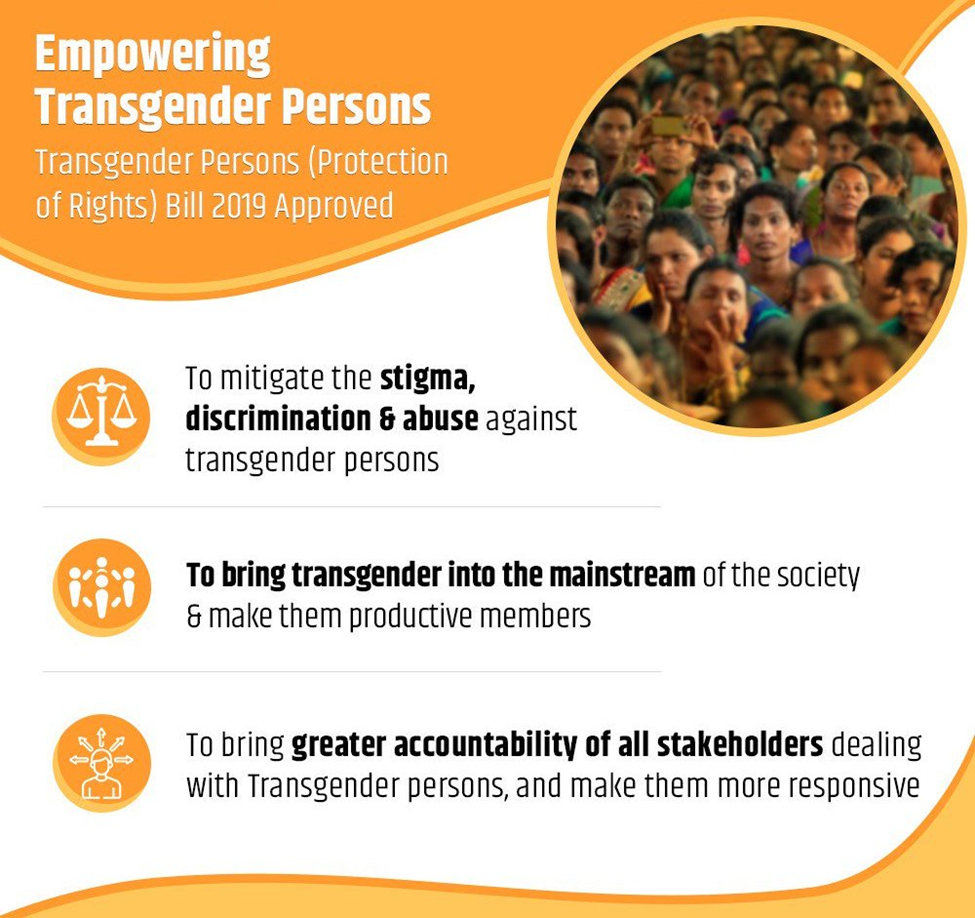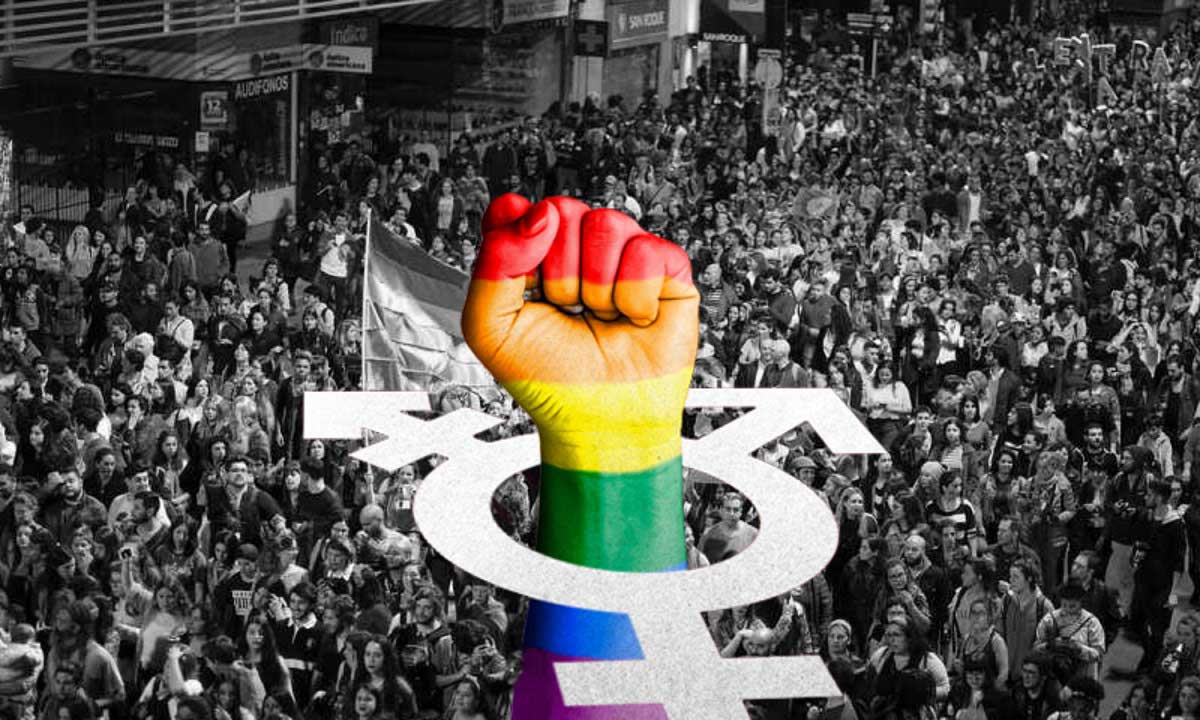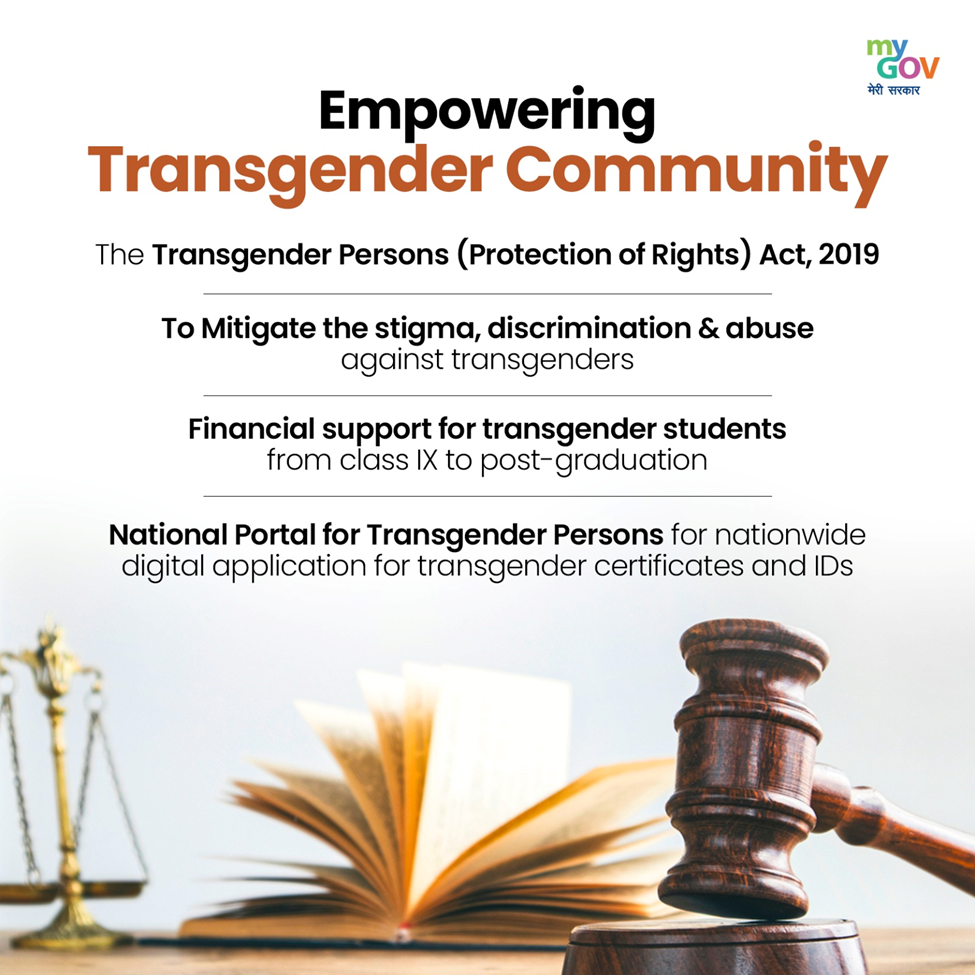Context:
The transgender community in India is one of the most marginalized and vulnerable groups, despite recent legal reforms aimed at promoting their rights. Historically revered in Indian society, particularly in religious and cultural contexts, transgender people have faced systemic exclusion, discrimination, and social ostracism for over a century. The Lancet study conducted by the University Medical Centre in Hamburg, Germany, highlights the importance of accessible mental health services for transgender individuals, especially in remote areas.
· This study shows that bi-weekly video consultations with therapists helped transgender individuals manage stress, build resilience, and navigate gender-affirming medical treatments.
· The study emphasizes the potential of internet-based health care to support transgender individuals and suggests that this approach could prevent worsening mental health conditions. However, more research is needed to evaluate the long-term benefits, particularly in the context of medical transitioning and post-surgery care.

Lancet Study Findings:
· A recent study published in The Lancet emphasized the critical need for mental health support for the LGBTQ+ community, particularly transgender individuals. Conducted by researchers at the University Medical Centre in Hamburg, Germany, the study explored the effectiveness of an interdisciplinary, internet-based health-care intervention.
· The findings indicated that bi-weekly video consultations with trained therapists significantly helped transgender individuals in remote areas manage stress, build resilience, and navigate gender-affirming medical treatment. The study concluded that online health services targeted at trans and gender-diverse people could effectively prevent worsening mental health.
Historical Context:
- Transgender individuals, often referred to as "Hijras" in South Asia, held a respected position in Indian culture for centuries. Their roles were tied to religious functions, blessings at childbirth, and social ceremonies. During the Mughal era, Hijras served as trusted advisors and guardians in royal courts. However, the arrival of British colonial rule in the 19th century drastically altered their societal standing.
- The enactment of the Criminal Tribes Act of 1871 by the British Empire criminalized certain communities, including Hijras, marking the beginning of their institutionalized marginalization. The Act defined them as “habitual criminals,” which subjected them to police surveillance, forced relocation, and exclusion from mainstream society. This colonial-era law set the foundation for the stigmatization and discrimination the transgender community faces today.
Legal Reforms and Rights Recognition
· A significant legal shift occurred in 2014 when the Supreme Court of India, in the landmark National Legal Services Authority (NALSA) v. Union of India case, recognized transgender individuals as a "third gender."
· The Court directed the government to treat transgender people as socially and educationally backward classes to ensure their access to reservations in education and jobs, along with proper medical care. Following this, the Transgender Persons (Protection of Rights) Act, 2019, was passed.
Challenges faced by transgender people:
Despite legal recognition, transgender people in India continue to face significant socio-economic challenges. According to various studies, around 92% of transgender people are unable to participate in any form of economic activity, leading many to engage in begging or sex work for survival.
1. Education: Although the Right to Education Act guarantees free and compulsory education to all children up to the age of 14, transgender children are often ostracized or bullied in school environments, leading to high dropout rates.
· Lack of awareness, gender sensitization, and an inclusive curriculum contribute to the exclusion of transgender students. The dropout rate among transgender individuals is significantly higher, with many unable to complete their schooling due to harassment and stigmatization.
2. Employment: Employment opportunities for transgender individuals remain scarce. A 2020 report by the National Human Rights Commission (NHRC) found that only 6% of transgender people in India are formally employed, despite legal mandates for reservation in public jobs.
· Discriminatory hiring practices, workplace harassment, and lack of policy implementation keep transgender people out of mainstream employment sectors.
3. Healthcare: Access to healthcare remains one of the most pressing issues for transgender individuals. Many face discrimination from healthcare providers, who may lack the necessary knowledge or sensitivity regarding transgender health issues, including hormone therapy, mental health support, and gender-affirming surgeries.
· The NALSA judgment and the 2019 Act mandate healthcare facilities for transgender persons, but in practice, these services remain inadequate or unavailable in many parts of the country.
Government initiatives for transgender people:
The Government of India, through The Transgender Persons (Protection of Rights) Act, 2019, has taken significant steps to address the issues faced by transgender individuals, ensuring their rights and welfare. Here's an overview of the key initiatives:
1. National Council for Transgender Persons: Established to advise the government on policies and legislation affecting transgender persons, this council monitors the impact of these policies and coordinates efforts across various departments and NGOs. The council was reconstituted in November 2023.
2. SMILE Scheme: The "Support for Marginalized Individual for Livelihood and Enterprise" (SMILE) scheme, specifically designed for transgender persons, encompasses several welfare measures. Key components include:
o Skill Development to enhance employment opportunities.
o Composite Medical Health care.
o Garima Grehs, which are safe shelters for transgender persons.
o National Portal for Transgender Persons, providing transgender certificates and ID cards.
o Transgender Protection Cells for the safety and welfare of transgender persons.
3. Healthcare Integration: A Memorandum of Understanding with the National Health Authority (NHA) integrates transgender persons into the Pradhan Mantri Jan Arogya Yojana (PMJAY), enabling access to health facilities under the Ayushman Bharat scheme.
4. Garima Grehs: Shelter homes for destitute transgender persons have been set up in 12 locations across 9 states, offering safe and dignified spaces for those in need.
5. Transgender Certificates and ID Cards: Through the National Portal for Transgender Persons, transgender individuals can apply for certificates and ID cards. Over 21,000 certificates have been issued so far, easing the process without the need for in-person visits to government offices.
6. Transgender Protection Cells: Eleven states and union territories have set up Transgender Protection Cells to address safety and protection concerns. These are located in states like Chhattisgarh, West Bengal, Rajasthan, and others.
7. Transgender Welfare Boards (TWB): Nineteen states/UTs have established TWBs to ensure proper coordination and implementation of welfare schemes. These include Rajasthan, Mizoram, Kerala, Tamil Nadu, Uttar Pradesh, and more.
8. Non-discrimination Policies: Government advisories and the Equal Opportunities Policy for Transgender Persons encourage the inclusion of transgender persons in employment and non-discriminatory treatment in public and private spheres.
Despite legal reforms and growing recognition, transgender individuals in India remain among the most marginalized, grappling with discrimination, exclusion, and limited access to essential services. Strengthening mental health support, ensuring comprehensive healthcare access, and rigorously enforcing legal protections are crucial steps towards achieving genuine social and economic inclusion for the transgender community.
|
Probable questions for UPSC Mains exam: Evaluate the effectiveness of government initiatives such as the SMILE scheme and the National Council for Transgender Persons in addressing the issues of livelihood, healthcare, and safety for the transgender community. |








